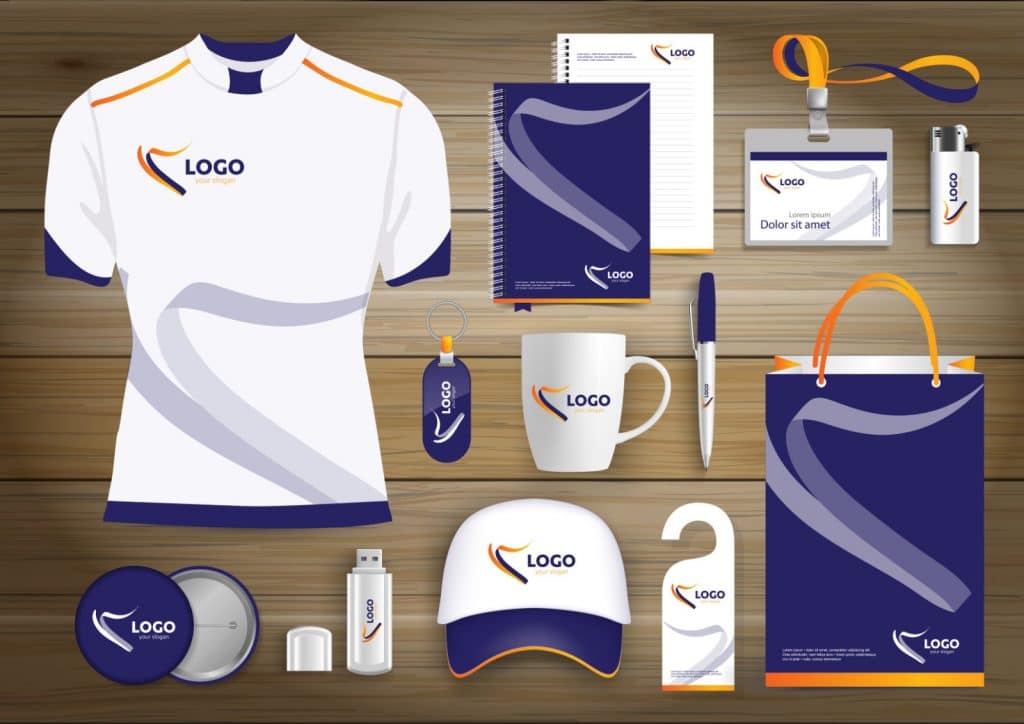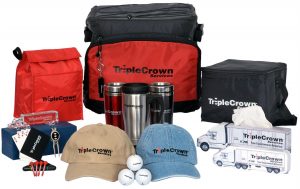Giving out branded merchandise is an easy and cost-effective way of ensuring your customers interact with your brand every day. This will be very efficient in promoting brand awareness and positive brand association.
Branding is arguably one of the most important marketing tools any business has. Good branding in particular forms an imprint in the customers’ minds, giving them something memorable and familiar to look out for when they’re scouring the market for the best provider. Ideally, branding portrays you in a certain light to your customers – in fact, it is one of the most effective ways of communicating who you are and what your business is all about.
Developing your brand from a simple black and white logo to a household name that the consumers resonate with takes time and lots of concentrated effort. Offering branded merchandise and promotional products and to your customers is one impactful way of doing this.
What are branded promotional products?
Branded merchandise are any products that have the name or logo of your company. These products are typically used for promotional purposes and are offered (usually freely) to customers. When applied properly, this strategy has been found to drastically improve brand identity, thereby increasing brand awareness and, ultimately, sales.
What are the benefits of these products?
Branded merchandise is incredibly important, especially for relatively new brands that are looking to increase their identity and grow their customer base. Here are 4 crucial benefits of using this means of product and brand promotion.
1. Brand awareness and positive brand association
Handing out branded merchandise is only worthwhile if the products you give out will add value to your customers’ lives. For example, if you plan on only giving away business cards, you should probably reconsider. Instead, offer products that you can be sure your customers will use, like branded umbrellas, t-shirts, and flash drives. Such items are far more valuable than that embossed business card and are likely to be received more excitedly.
Whenever such customers see your brand name and logo again, they will associate it with the unique and helpful merch they received from you. This is a psychological phenomenon called positive brand association and is one of the goals of marketing in the first place.
2. Increased customer loyalty
According to the British Promotional Association, a survey concluded that more than 70% of customers are willing to purchase a product from a brand after they’ve received a gift. If your business isn’t already taking advantage of these figures, you need to. Handing out free branded merchandise to customers makes them feel valued and appreciated, and is likely to win you many more loyal customers.
3. It casts a light on the kind of business you run
Using branded merchandise to create brand awareness and promote your company is essential as it makes for tangible advertising. It appeals to all the 5 senses, giving the customers something they can see, touch, and experience.
This method also speaks volumes about the sort of business yours is. By investing in high quality, well-designed premium merchandise, you depict a firm committed to quality and customer satisfaction. This will dictate the first impression you make on new customers.
4. It caters to the general public’s short concentration span
As we continue to become more and more advanced technologically, exposing ourselves to even more information than ever before, it’s no surprise just how short the average person’s concentration span is. Traditional forms of advertising, for the most part at least, do nothing but add to this information. Think about it.
How many flyers and business cards have you passed around? How much money have you spent on ad campaigns that people just forward through or listen passively to? It would make much more sense to spend this money on branded merchandise. Items like t-shirts, umbrellas, hats, and bumper stickers work especially wonderfully as your customers tend to take them around, essentially offering you free advertising.
5. It is a simple, uncomplicated marketing model
Unlike television ad campaigns and other major marketing ventures that require a detailed and well-thought-out plan to roll out, handing out promotional branded merchandise is simple. You could incorporate this model into your business operations by branding products that your company already gives away for free, like pens, notebooks, and key holders.
Another good idea, if you own a store, would be to design and print custom reusable shopping bags you could give to new customers whenever they come into your store. And since everyone is keen on recycling now, you can be sure these customers will find this thoughtful.
Making promotional merchandise work for your business
Different businesses have different models and offer different services and products. Figuring out which branded merchandise to offer based on the nature of your company is crucial. This way, the products you give out will remind your customers about your own products. A great example of this is when soft drink companies give away free pitchers and glasses. Finding your own sweet spot and giving customers items they can actually use will go a long way in growing your brand and helping you keep the customers you’ve already won over.
For personalized advice on how you can improve your brand and which branded merchandise to purchase, contact us today!



